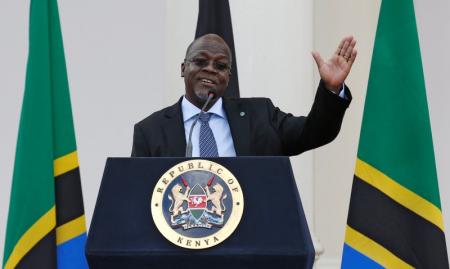Tanzania’s government signed a $154 million contract on Saturday with the state-run China Harbour Engineering Company (CHEC) to expand the main port in the commercial capital, Dar es Salaam.
Tanzania is seeking financing for infrastructure projects as part of its plans to transform the country into a regional transport and trade hub.
Under the contract funded by a World Bank loan, CHEC, a subsidiary of the state-run China Communications Construction Co Ltd, will build a roll-on, roll-off (ro-ro) terminal and deepen and strengthen seven berths at Dar es Salaam port.
Tanzania hopes expansion of the port will increase container throughput to 28 million tonnes a year by 2020 from around 20 million tonnes currently.
“Deepening and strengthening of the berths will allow big container ships to dock in Dar es Salaam. All these efforts are being done in order to increase competitiveness of the port,” works, transport and communications minister Makame Mbarawa said at the signing of the contract.
East Africa’s second-biggest economy wants to profit from its long coastline and upgrade its rickety railways and roads to serve the growing economies in the land-locked heart of Africa.
Big gas finds in Tanzania and oil discoveries in Kenya and Uganda have turned East Africa into an exploration hotspot for oil firms, but transport infrastructure in those countries has suffered from decades of under-investment.
Tanzania said in January it will receive a $305 million loan from the World Bank to expand its main port, where congestion and inefficiencies are hampering service delivery.
The port, whose main rival is the bigger but also congested port of Mombasa in Kenya, acts as a trade gateway for landlocked African states such as Zambia, Rwanda, Malawi, Burundi and Uganda, as well as the eastern region of the Democratic Republic of Congo.
The World Bank said in a 2014 report that inefficiencies at Dar es Salaam port were costing Tanzania and its neighbours up to $2.6 billion a year.
Chinese President Xi Jinping announced plans to plough $60 billion into African development projects at a summit in Johannesburg in 2015, saying it would boost agriculture, build roads, ports and railways and cancel some debt.
Reuters



